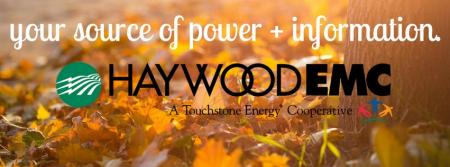The Seven Cooperative Principles
Voluntary and Open Membership
Cooperatives are voluntary organizations, open to all persons able to use their services and willing to accept the responsibilities of membership, without gender, social, racial, political or religious discrimination.
Democratic Member Control
Cooperatives are democratic organizations controlled by their members, who actively participate in setting policies and making decisions. The elected representatives are accountable to the membership. In primary cooperatives, members have equal voting rights (one member, one vote) and cooperatives at other levels are organized in a democratic manner.
Members’ Economic Participation
Members contribute equitably to, and democratically control, the capital of their cooperative. At least part of that capital is usually the common property of the cooperative. Members usually receive limited compensation, if any, on capital subscribed as a condition of membership. Members allocate surpluses for any or all of the following purposes: developing the cooperative, possibly by setting up reserves, part of which at least would be indivisible; benefiting members in proportion to their transactions with the cooperative; and supporting other activities approved by the membership.
Autonomy and Independence
Cooperatives are autonomous, self-help organizations controlled by their members. If they enter into agreements with other organizations, including governments, or raise capital from external sources, they do so on terms that ensure democratic control by their members and maintain their cooperative autonomy.
Education, Training, and Information
Cooperatives provide education and training for their members, elected representatives, managers and employees so they can contribute effectively to the development of their cooperatives. They inform the general public, particularly young people and opinion leaders, about the nature and benefits of cooperation.
Cooperation Among Cooperatives
Cooperatives serve their members most effectively and strengthen the cooperative movement by working together through local, national, regional and international structures.
Concern for Community
While focusing on member needs, cooperatives work for the sustainable development of their communities through policies accepted by their members.

Non-Discrimination Statement
In accordance with Federal civil rights law and U.S. Department of Agriculture (USDA) civil rights regulations and policies, the USDA, its Agencies, offices, and employees, and institutions participating in or administering USDA programs are prohibited from discriminating based on race, color, national origin, religion, sex, gender identity (including gender expression), sexual orientation, disability, age, marital status, family/parental status, income derived from a public assistance program, political beliefs, or reprisal or retaliation for prior civil rights activity, in any program or activity conducted or funded by USDA (not all bases apply to all programs). Remedies and complaint filing deadlines vary by program or incident.
Persons with disabilities who require alternative means of communication for program information (e.g., Braille, large print, audiotape, American Sign Language, etc.) should contact the responsible Agency or USDA’s TARGET Center at (202)720-2600 (voice and TTY) or contact USDA through the Federal Relay Service at (800)877-8339. Additionally, program information may be made available in languages other than English.
To file a program discrimination complaint, complete the USDA Program Discrimination Complaint Form, AD-3027, found online at http://www.ascr.usda.gov/complaint_filing_cust.html and at any USDA office or write a letter addressed to USDA and provide in the letter all of the information requested in the form. To request a copy of the complaint form, call (866) 632-9992. Submit your completed form or letter to USDA by:
(1) mail: U.S. Department of Agriculture
Office of the Assistant Secretary for Civil Rights
1400 Independence Avenue, SW
Washington, D.C. 20250-9410;
(2) fax: (202) 690-7442; or
(3) email: program.intake@usda.gov.
USDA is an equal opportunity provider, employer, and lender.
De acuerdo con la ley federal de derechos civiles y las reglamentaciones y políticas de derechos civiles del Departamento de Agricultura de Estados Unidos (U.S. Department of Agriculture, USDA), se prohíbe al USDA, sus agencias, oficinas y empleados, e instituciones que participan o administran los programas del USDA, discriminar por motivos de raza, color, origen nacional, religión, género, identidad de género (incluidas las expresiones de género), orientación sexual, discapacidad, edad, estado civil, estado familiar/parental, ingresos derivados de un programa de asistencia pública, creencias políticas, o reprimendas o represalias por actividades previas sobre derechos civiles, en cualquier programa o actividad llevados a cabo o financiados por el USDA (no todas las bases se aplican a todos los programas). Las fechas límite para la presentación de remedios y denuncias varían según el programa o el incidente.
Las personas con discapacidades que requieran medios alternativos de comunicación para obtener información sobre el programa (por ej., Braille, letra grande, cinta de audio, lenguaje americano de señas, etc.) deberán comunicarse con la Agencia responsable o con el Centro TARGET del USDA al (202) 720-2600 (voz y TTY) o comunicarse con el USDA a través del Servicio Federal de Transmisiones al (800) 877-8339. Asimismo, se puede disponer de información del programa en otros idiomas además de inglés.
Para presentar una denuncia por discriminación en el programa, complete el Formulario de denuncias por discriminación en el programa del USDA, AD-3027, que se encuentra en línea en http://www.ascr.usda.gov/complaint_filing_cust.html, o en cualquier oficina del USDA, o escriba una carta dirigida al USDA e incluya en la carta toda la información solicitada en el formulario. Para solicitar una copia del formulario de denuncias, llame al (866) 632-9992. Envíe su formulario completado o su carta al USDA por los siguientes medios:
(1) correo: U.S. Department of Agriculture,
Office of the Assistant Secretary for Civil Rights,
1400 Independence Avenue, SW
Washington, D.C. 20250-9410;
(2) fax: (202) 690-7442; o
(3) correo electronico: proqram.intakeusda.qov.
El Departamento de Agricultura de Estados Unidos (USDA) es un proveedor, empleador y prestador que ofrece igualdad de oportunidades.
